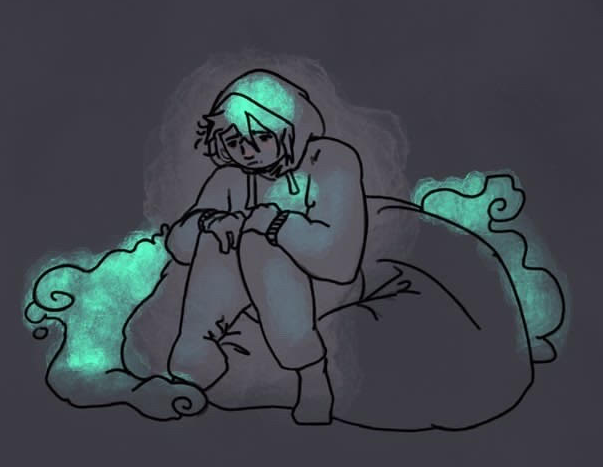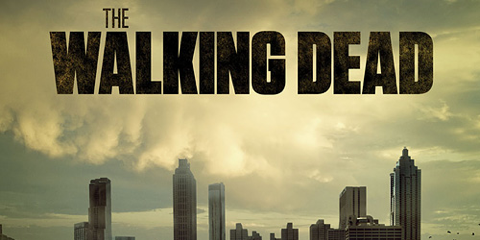Every commercial is manipulative. Remember when Lance Armstrong endorsed Nike? In 2001, he starred in an infamous commercial where he directly addressed the rumors of his possible steroid use. “Everyone wants to know what I’m on,” Armstrong said in the ad. “What am I on? I’m on my bike [working] six hours a day. What are you on?” In 2013, Armstrong revealed he actually used steroids for years. Nike only dropped Armstrong a few months prior to the confession. Manipulation is everywhere. Unfortunately, everywhere includes the entire television medium. The Walking Dead’s writing staff create maddeningly impossible, manipulative storylines to “thrill” the audience, but I’m still addicted anyway.
In TWD, there is at least one scene per episode where a beloved character is about to die. Then, against all odds, the character survives. The scenes are always awesome, but they never make any sense. A few weeks ago, the main protagonist’s son, Carl, got shot in the eye. By some sort of miracle, the bullet only went through his eye, and the character was fine. In any other circumstance, would this character be okay? Probably not. Surviving a bullet to the eye isn’t impossible, but the odds are clearly stacked against it.
The writers also like to play around with what the viewer’s don’t see. Earlier in the season, the main character, Rick, was in serious danger as a hoard of zombies crowded his vehicle. Unfortunately, the car wasn’t working, so he couldn’t quickly drive away. At the end of the episode, there are hundreds of zombies around the car. The next time we see Rick, he already escaped his disastrous situation off-screen. Why? The situation wasn’t impossible to escape from, but the episode closed on a tone that tricked the viewers into thinking that Rick was in legitimate peril. The viewer has to make too many assumptions about other characters’ off-screen actions which is annoying and confusing.
Another problem with TWD was the entire cannibal storyline that thankfully only lasted a few episodes. By the cannibal arc in season 5, the vast majority of people in the world are dead. Sure, there are still groups out there, but worldwide, there are only about 1 million projected survivors out of the near 7 billion people that there were at the start of the apocalypse. For some reason, this group thought the only way they could survive was by murdering people and eating them. These people literally decide to hunt down the last million or so survivors to eat them. Were the leaders of the cannibals oblivious to the fact that there are still animals that are alive? This was never made clear. Deer aren’t extinct yet. The audience knows because deer are seen ever so often. Growing fruit and vegetables is also an alternative choice. After introducing the ridiculousness of the cannibals, the writers tried to justify the situation by making the cannibals victims. The writers constructed a lazily put together 3 minutes of cannibal back story that intended for the audience to feel sympathetic for the cannibals. These people were cannibals. They were definitely not the victims.
While the frequent impossible near-death scenes and the entire cannibal storyline are admittedly horrible, nothing quite compares to Glenn’s “death”. The Walking Dead writers seriously shocked viewers when they “killed off” Glenn. There was a passionate outrage that followed the “death”. It was very heartbreaking because the character is from the first episode. Six seasons in, killing any character from the first season is very emotional.
The day after Glenn’s “death”, however, the fans argued that Glenn did not actually die. Most people shrugged this off as accusing many viewers of being in denial, but the viewer’s weren’t wrong. Glenn was alive, but if anything, that made the show even more infuriating.
Let’s walk through the entire death scene. Glenn and Nicholas, a poorly-written side character that no one truly felt empathy for, were surrounded by zombies on top of a dumpster. The situation was pretty terrible. There was no place for them to jump to or escape. Nicholas, who was clearly struggling with some psychological issues, decides to kill himself and give up now. Somehow, a character survives a terrible apocalypse for years and decides to just give up now? Since Nicholas hadn’t given up before, then I’m not sure why he would suddenly give up on top of a dumpster. He tried to justify it by saying that he was saving Glenn, but obviously he wasn’t paying attention to where his body would fall because the body fell on Glenn causing both men to fall off the dumpster.
The closing scene shows guts flying everywhere, and we assume that Glenn is dead because of the utter defeat depicted on Glenn’s face as well as the blood filling the screen. From the way the scene is shot, the audience never actually sees a zombie bite Glenn. Amidst the inescapable scene, Glenn escapes under the dumpster. The writers completely disregarded the pain of the fall and the acute chance that one of the hundred zombies wouldn’t have bit him. After Nicholas’s body is just bones, the zombies slowly start to move away. Glenn eventually is able to escape from under the dumpster unscathed. The writing team’s maneuver to let Glenn escape undermines the intelligence of the audience.
Although I rant about The Walking Dead, I still love the show and will continue to watch every episode until it ends. Many WO students feel the same way. “Even though some of the storylines are a bit outrageous, I love The Walking Dead because it is every entertaining,” Sr. Emily Lachtrupp said. “If you take out a few scenes, then you have a well-written show.”
The bottom line is: The Walking Dead writers make continual ridiculous decisions. While the grass is somehow always mowed and the characters somehow have non-blood-stained clothes, The Walking Dead is an entertaining show.







